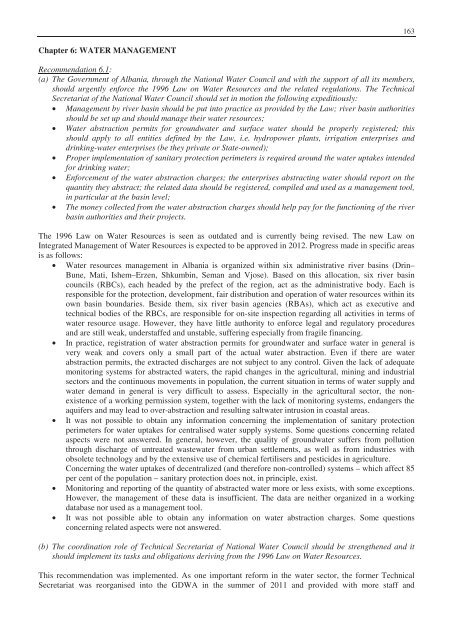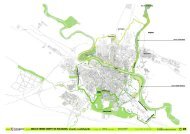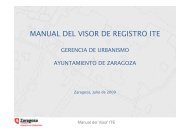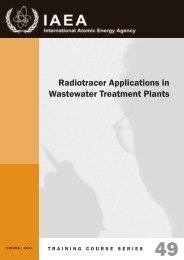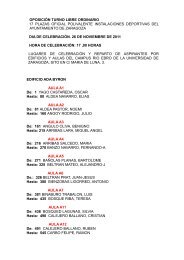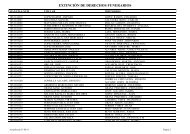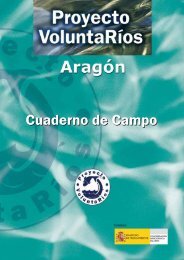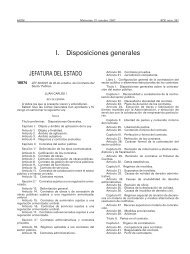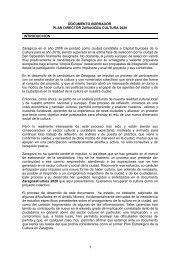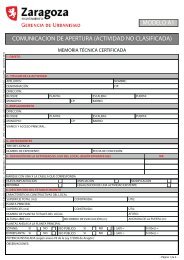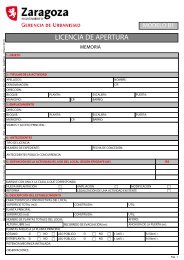Second Environmental Performance Review of Albania
Second Environmental Performance Review of Albania
Second Environmental Performance Review of Albania
You also want an ePaper? Increase the reach of your titles
YUMPU automatically turns print PDFs into web optimized ePapers that Google loves.
163Chapter 6: WATER MANAGEMENTRecommendation 6.1:(a) The Government <strong>of</strong> <strong>Albania</strong>, through the National Water Council and with the support <strong>of</strong> all its members,should urgently enforce the 1996 Law on Water Resources and the related regulations. The TechnicalSecretariat <strong>of</strong> the National Water Council should set in motion the following expeditiously:• Management by river basin should be put into practice as provided by the Law; river basin authoritiesshould be set up and should manage their water resources;• Water abstraction permits for groundwater and surface water should be properly registered; thisshould apply to all entities defined by the Law, i.e. hydropower plants, irrigation enterprises anddrinking-water enterprises (be they private or State-owned);• Proper implementation <strong>of</strong> sanitary protection perimeters is required around the water uptakes intendedfor drinking water;• Enforcement <strong>of</strong> the water abstraction charges; the enterprises abstracting water should report on thequantity they abstract; the related data should be registered, compiled and used as a management tool,in particular at the basin level;• The money collected from the water abstraction charges should help pay for the functioning <strong>of</strong> the riverbasin authorities and their projects.The 1996 Law on Water Resources is seen as outdated and is currently being revised. The new Law onIntegrated Management <strong>of</strong> Water Resources is expected to be approved in 2012. Progress made in specific areasis as follows:• Water resources management in <strong>Albania</strong> is organized within six administrative river basins (Drin–Bune, Mati, Ishem–Erzen, Shkumbin, Seman and Vjose). Based on this allocation, six river basincouncils (RBCs), each headed by the prefect <strong>of</strong> the region, act as the administrative body. Each isresponsible for the protection, development, fair distribution and operation <strong>of</strong> water resources within itsown basin boundaries. Beside them, six river basin agencies (RBAs), which act as executive andtechnical bodies <strong>of</strong> the RBCs, are responsible for on-site inspection regarding all activities in terms <strong>of</strong>water resource usage. However, they have little authority to enforce legal and regulatory proceduresand are still weak, understaffed and unstable, suffering especially from fragile financing.• In practice, registration <strong>of</strong> water abstraction permits for groundwater and surface water in general isvery weak and covers only a small part <strong>of</strong> the actual water abstraction. Even if there are waterabstraction permits, the extracted discharges are not subject to any control. Given the lack <strong>of</strong> adequatemonitoring systems for abstracted waters, the rapid changes in the agricultural, mining and industrialsectors and the continuous movements in population, the current situation in terms <strong>of</strong> water supply andwater demand in general is very difficult to assess. Especially in the agricultural sector, the nonexistence<strong>of</strong> a working permission system, together with the lack <strong>of</strong> monitoring systems, endangers theaquifers and may lead to over-abstraction and resulting saltwater intrusion in coastal areas.• It was not possible to obtain any information concerning the implementation <strong>of</strong> sanitary protectionperimeters for water uptakes for centralised water supply systems. Some questions concerning relatedaspects were not answered. In general, however, the quality <strong>of</strong> groundwater suffers from pollutionthrough discharge <strong>of</strong> untreated wastewater from urban settlements, as well as from industries withobsolete technology and by the extensive use <strong>of</strong> chemical fertilisers and pesticides in agriculture.Concerning the water uptakes <strong>of</strong> decentralized (and therefore non-controlled) systems – which affect 85per cent <strong>of</strong> the population – sanitary protection does not, in principle, exist.• Monitoring and reporting <strong>of</strong> the quantity <strong>of</strong> abstracted water more or less exists, with some exceptions.However, the management <strong>of</strong> these data is insufficient. The data are neither organized in a workingdatabase nor used as a management tool.• It was not possible able to obtain any information on water abstraction charges. Some questionsconcerning related aspects were not answered.(b) The coordination role <strong>of</strong> Technical Secretariat <strong>of</strong> National Water Council should be strengthened and itshould implement its tasks and obligations deriving from the 1996 Law on Water Resources.This recommendation was implemented. As one important reform in the water sector, the former TechnicalSecretariat was reorganised into the GDWA in the summer <strong>of</strong> 2011 and provided with more staff and


